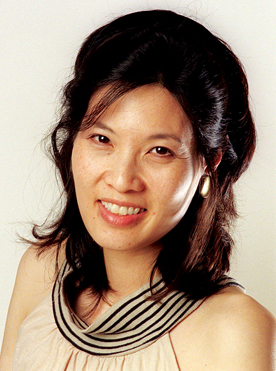
Sheryl WuDunn
By James Tabafunda
NORTHWEST ASIAN WEEKLY
The title of Sheryl WuDunn’s 2009 New York Times bestseller “Half the Sky: Turning Oppression into Opportunity for Women Worldwide” comes from a Chinese proverb that says “Women hold up half the sky.” Last May, her appearance at the University of Oregon expanded on women’s importance in the world through marketing posters that featured her statement, “The greatest unexploited resource in the world today isn’t oil or gold or wind. It’s women.”
WuDunn, a Chinese American and women’s rights advocate, will speak about how women (and girls) are changing their tragic experiences into triumphs at the YWCA Inspire Luncheon, which will take place at the Washington State Convention Center in Seattle, on April 24.
The luncheon is the second of three events, each one a part of the YWCA’s Women Empowered Campaign to raise $26.5 million. According to Cathy MacCaul, director of community affairs and public policy at YWCA Seattle King Snohomish, the YWCA is the largest provider of housing for women, helping 62,000 people in a two-county region and getting them into transitional housing or new jobs.
More than 2,000 people attended last year’s luncheon. At the first luncheon held on March 15 in Bellevue — featuring guest speaker and Oscar-winner Helen Hunt — more than 1,200 people attended and donated to YWCA.* Last fall, she was a senior fellow at Yale University and taught a one-semester course for undergraduates on global affairs, “China’s Economic Development and its Global Role.”
“My [course] topic will be on the issues in ‘Half the Sky,’ but I think there will be applications for challenges that women face here in the U.S. as well,” said WuDunn.
The three most significant international challenges, cited in “Half the Sky,” are sex trafficking, maternal mortality, and violence against women.
WuDunn first learned about the neglect of infant Chinese girls while working as a journalist at the New York Times in 1989, covering the Tiananmen Square massacre, for which she and husband Nicholas D. Kristof won a Pulitzer Prize. At that time, 39,000 infant girls died each year from neglect because infant boys were valued more and allowed exclusive access to health care.
She later discovered different forms of gender inequity in other countries around the world.
At an international conference two years ago, she referenced State Department statistics, saying, “There are about 800,000 (people, mostly women) that are trafficked across international borders, and that does not even include those that are trafficked within country borders.”
WuDunn also pointed out, “In Africa, one in seven women in Niger can expect to die in their lifetime while giving birth because they just don’t have access to health care. Mothers usually deliver their kids in a hospital here in the U.S. Well, that doesn’t happen in Africa.”
She says the deliveries are performed by African midwives who are not medically educated and use a lot of medically unsound practices.
Violence against women includes physical beatings that cause death. Extreme cases of acid attacks in South and Southeast Asia occur, where women are burned by acid that is thrown at their faces.
In India and Pakistan, bride burnings — eliminating a widow’s chance to remarry or punishment for an insufficient dowry — still take place when a woman either throws herself on her deceased husband’s funeral pyre or is intentionally set on fire. “That’s maybe 600 or 700 deaths per year in India alone, but that’s still a lot,” said WuDunn.
Despite all the horrific stories in “Half the Sky,” WuDunn emphasized, “we really want to tell people that there also are solutions.”
According to WuDunn, education and economic empowerment for all women are important, as well as support from the 40 different organizations listed in “Half the Sky.” “You have to educate people so that they can actually be equipped to think for themselves, and then you have to give them job opportunities,” WuDunn said.
She says microfinance has also been effective in helping many women start their own businesses and get themselves out of poverty.
“[Sheryl WuDunn] will be raising awareness about the issues and challenges women and children face, particularly minority women. The same disparities that exist internationally exist here in this country,” said MacCaul.
“What individuals can do is bridge that gap and eliminate these disparities.” (end)
For more information about the YWCA Inspire Luncheon, go to www.ywcaworks.org/netcommunity. For more information about “Half the Sky: Turning Oppression into Opportunity for Women Worldwide” and its fall 2012 PBS documentary series, go to www.halftheskymovement.org.
James Tabafunda can be reached at info@nwasianweekly.com.
*Changes were made to this article that does not appear in the print edition.


